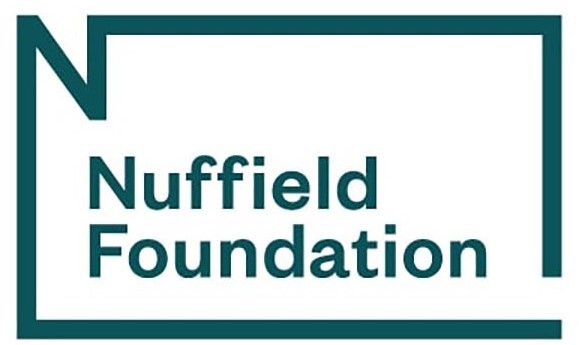The Education Policy Institute has published a report, funded by the Nuffield Foundation, which compares the education catch up plans of the four UK nations, and examines how they previously approached the reopening of schools.
The report finds that the catch-up plans of England, Scotland, Wales and Northern Ireland offer insufficient support for pupils, and are unlikely to address the scale of learning loss following the pandemic.
The funding directly committed in Scotland for catch-up is shown to be the most generous on a per pupil basis, followed by England. Both countries offer catch up funding per pupil that is over twice that of the support offered by Wales and Northern Ireland.
However, the catch-up programmes of Wales and Northern Ireland are far better targeted at their most disadvantaged pupils, who according to research, have seen their education suffer the most over the course of the pandemic. In these two countries, around half of catch-up funding is allocated to poorer pupils.
English and Scottish programmes, in contrast, are poorly targeted – with a lower proportion of funds directed at their most disadvantaged pupils.
As all UK nations move closer towards reopening schools, the new research also examines how all four governments fared during the last period of reopening in the autumn term, in order to understand the lessons that each country can learn.
This includes an assessment of support for the most vulnerable children, how local outbreaks and closures were dealt with, and approaches to early years education – each of which differed greatly among the UK nations.
You can download the full report here.
Key findings
Comparing education catch-up plans in the UK
While governments across the UK have provided extra support for catch-up, these plans differ in their funding levels, approach and focus on disadvantaged pupils:
- In England, the Department for Education has committed around £1.2bn or £174 per pupil for catch-up support (£1.3bn if the £96m for colleges is included). This includes a general catch-up premium of £80 per pupil, in addition to the National Tutoring Programme targeted at more disadvantaged pupils.
- The Scottish Government has provided £140m or £200 per pupil. Plans announced in 2020 cover two years and allow for 1,400 additional teachers and 200 extra support staff
- The Welsh government has provided about £40m or £88 per pupil for catch-up support through its ‘Accelerated Learning Programme’ and targeted support for exam year groups.
- The Northern Ireland Executive has provided about £28m for catch-up support and activities, or about £82 per pupil. This includes activities in schools in summer 2020 and the ‘Engage Programme’ to help pupils catch-up.
- While the level of catch-up funding is clearly lower in Wales and Northern Ireland, a larger share of programme funding is targeted at disadvantaged pupils in Wales and Northern Ireland (around 50 per cent) than in England (30%) and Scotland (20%).
- Whilst these plans all represent welcome additional support, they are all modest compared with the scale of the challenge, with pupils so far missing out on about half a year of normal face-to-face schooling.
Reopening schools: how the UK nations fared previously
- After schools reopened again in the autumn term following the disruption from earlier in the year, attendance rates across the term were highest in Scotland and Northern Ireland (mostly about 90% or higher).
- This is due to low case rates in these countries, and because the new school year starts earlier, in August. This meant that pupils in Scotland and Northern Ireland were able to attend school in large numbers in August 2020 when cases were very low.
- In contrast, attendance in England and Wales across the autumn term was lower. It varied from 80% to 90% over the whole term, falling under 70% in Wales in mid-December.
- There was also more local variation in England and Wales, reflecting more significant local outbreaks. This affected deprived areas more, with the lowest attendance in South Wales, such as Swansea, Neath Port Talbot, Merthyr Tydfil, Blaenau Gwent and Newport, and in deprived areas of England, such as Oldham, Sandwell, Rochdale, Medway.
- Across the UK, attendance was lowest in special schools.
UK nations’ support for more vulnerable pupils with SEND
Children with special educational needs and disabilities (SEND) have faced considerable challenges with remote learning, with many lacking access to specialised support:
- Funding to support children with SEND was announced in Northern Ireland and England in the autumn term, in the spring term in Wales, but not yet in Scotland. In Northern Ireland and Wales, funding applies to children in all schools with SEND, while in England only the minority of children with SEND who attend a special school are eligible.
- All UK nations failed in the autumn term to provide sufficiently detailed guidance to schools and local authorities on how they are expected to deliver education for pupils with SEND.
- This omission from policymakers could prove highly damaging, given the risk that many children with SEND will have fallen behind their peers during the first lockdown and are likely to require more support to learn while at home than other pupils.
The experience of early years education settings in UK nations
After disruption during much of 2020, by the autumn, the proportion of early years providers that were open for children increased substantially:
- Early years providers reopened quickest in Wales and Scotland, where by October more than 90% of settings were open, compared to around 80% in England.
- Some key forms of support for providers across the UK such as the Coronavirus Job Retention Scheme have remained in place across the UK over this period.
- Government support for early years providers during the autumn term 2020 appears to have been most generous in England and Northern Ireland where some funding was over and above current demand for places. However, since January 2021, England has reverted to allocating funding based on registered places.
This report is funded by the Nuffield Foundation. The Nuffield Foundation is an independent charitable trust with a mission to advance social wellbeing. It funds research that informs social policy, primarily in Education, Welfare, and Justice. It also funds student programmes that provide opportunities for young people to develop skills in quantitative and scientific methods. The Nuffield Foundation is the founder and co-funder of the Nuffield Council on Bioethics and the Ada Lovelace Institute. The Foundation has funded this project, but the views expressed are those of the authors and not necessarily the Foundation.

Visit www.nuffieldfoundation.org


